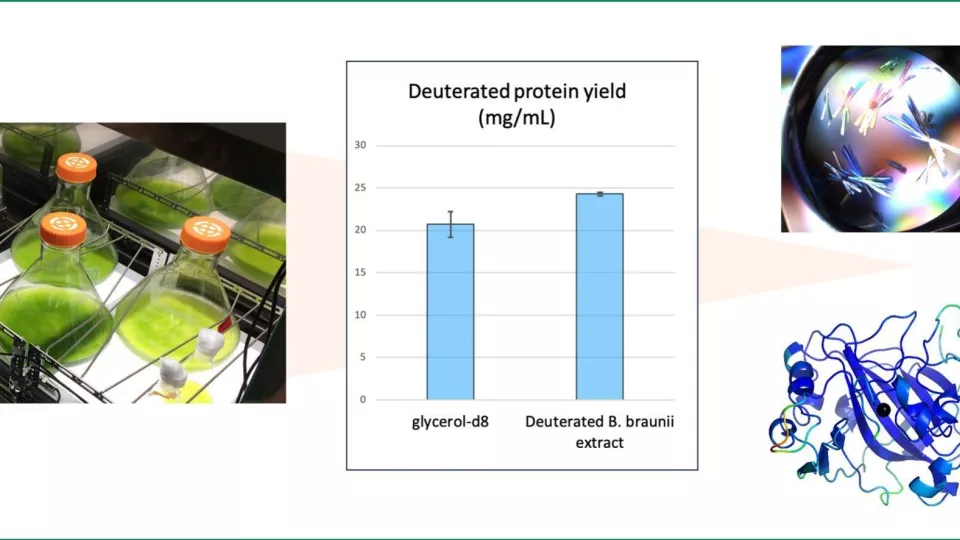Together with DEMAX (see external homepage), the Lund Protein Production Platform (LP3) recently published a new protocol for the use of algal autolysate for the production of deuterium-labeled recombinant protein featuring:
- Continuous cultivation and autolysis of deuterated B. braunii
- Autolysate used as glycerol substitute in recombinant protein production
- Using autolysate gives high protein yield and >98 % deuterium incorporation.
The full article with the title "Botryococcus braunii autolysate for the production of deuterium-labeled recombinant protein" can be read at Science Direct (external webpage).
LP3 hosts the Lund node of the national research infrastructure Protein Production Sweden (PPS) and provides production of (per)deuterated proteins, for example for neutron scattering experiments or NMR. Read more on the PPS homepage (external homepage).


